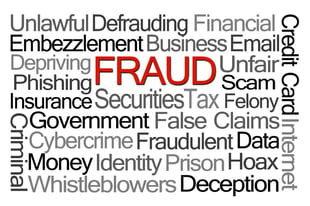June 13, 2016 | Business Growth Strategy & Strategic Planning
Manufacturers – Do You Know Where Your Money Is?
 Recently, I have been the unfortunate witness to an incident where a trusted employee, the Controller, absconded with high six figure amounts of money. This individual arranged for credit cards to be opened in the name of the company, authorized by a “letter” from the Principal whose signature was forged. Without going into the liability of the banks and credit card companies that enabled this embezzlement, there are some lessons to be learned that I would like to pass on. Hopefully, this will raise the awareness level of small manufacturers that fraud and theft is alive and maybe flourishing where you least expect it – in your company.
Recently, I have been the unfortunate witness to an incident where a trusted employee, the Controller, absconded with high six figure amounts of money. This individual arranged for credit cards to be opened in the name of the company, authorized by a “letter” from the Principal whose signature was forged. Without going into the liability of the banks and credit card companies that enabled this embezzlement, there are some lessons to be learned that I would like to pass on. Hopefully, this will raise the awareness level of small manufacturers that fraud and theft is alive and maybe flourishing where you least expect it – in your company.
Avoiding Embezzlement
I have yet to meet a small business owner (which I define here as one with less than 25-employees), who has not told me how busy they are, since they all wear several hats. When sales are down, cash is low, and lenders and vendors are knocking at the door demanding payments and information, the pressures cause many of us to place undue reliance on someone managing the numbers. Yet this is when you are most vulnerable – when you are “desperate,” when you are stressed, when you depend on someone else to protect your financial assets.
So, here are 8 tips for you to consider no matter how pressed for time you are. Taking care and putting proper procedures in place can help mitigate, if not eliminate, you becoming a victim of employee embezzlement.
Tip #1: Keep a Close Eye on Your Bank Statements
Always, always, look at your bank statements yourself - look for anomalies or unusual items and when found, ask for an explanation. If you are paperless and work off online statements, pull a statement once a month, or better yet, look at the statement register every few days. After doing this for a while, your controller/bookkeeper will know you are watching and if they have dishonesty in mind, they will think twice. Maximum invested time to do this: 10-20 minutes.
Tip #2: Resist Unnecessary Authority
Limit the authority of the bookkeeper/controller with what they can access, execute and authorize with the company bank accounts. They should be able to access bank statements, but should not have signing authority on checks. They should not have authority to wire funds, nor sign on your behalf.
Tip #3: Stay Organized
Try to organize your bill paying to a schedule, once a week, every 30 days, or whenever practical. When checks are presented for payment, insist that support documents be attached, such as invoices, proof of purchase, written confirmations, etc. And look at the documents – check the what, the why and the amount. Depending on how many bills you pay in a cycle, maximum invested time to do this: 15-30 minutes.
Tip #4: Require Back Up Documentation
When a check must be written off schedule, require back up and always ask why.
Tip #5: Don't Leave Signed Checks Behind
When you go on vacation, do not leave signed checks behind. Instead, contact some of your more important vendors and discuss the fact that there will be no payments while you are away. Plan your vacation in between billing cycles so the need for checks is minimal. If an emergency comes up, you can always call your bank and initiate a wire transfer – but plan ahead and prearrange with the bank to have the ability to authorize wire transfers with a phone call.
Tip #6: Limit Third Party Bank Authorization
Today’s modern cash management tools include the ability to pay vendors, utilities, contractors, etc. online. I suggest that this method be limited to those vendors that require it – giving a third party authorization to debit your company bank account to pay bills in the interest of saving time could in the long run cost you far more than the additional labor cost. If you insist on paying bills online, and don’t want to do it yourself, bank statements usually list checks paid separately from online payments, so again, look at the charges against the account for anomalies or unusual items.
Tip #7: Background Checks Matter
Thoroughly screen your bookkeeper or controller. Pay for a deep background check instead of a cursory one – the difference in price is well worth avoiding the pain later. My client’s controller had embezzled before, was convicted, and it never showed up on the cut-rate background check.
Tip #8: Know Your Payroll Company
If you issue payroll checks, you should sign them – and make sure amounts and hours are reasonable. Make sure you know your staff. If you use a payroll service, scan the report that comes in with the payroll checks, again looking for any employee who isn’t an employee. Also, make sure the payroll company is reputable and financially solid – remember, you are personally liable for any payroll taxes not paid. And make sure the payroll company is the only one with your authorized facsimile signature. No rubber signature stamps.
Make sure you know your staff. If you use a payroll service, scan the report that comes in with the payroll checks, again looking for any employee who isn’t an employee. Also, make sure the payroll company is reputable and financially solid – remember, you are personally liable for any payroll taxes not paid. And make sure the payroll company is the only one with your authorized facsimile signature. No rubber signature stamps.
Common sense? Yes, yet the incident I referred to above, happened over a three year period. Hopefully, most of you have procedures in place so that this doesn’t happen to you.
And please remember: an honest person will not resent you looking over their shoulder, so please do.
Here is more information on embezzlement warning signs that you can monitor.
 Thanks to Doug Waterman, who has been a Client Advisor for four years at CMTC, for contributing his expertise. Doug regularly assists manufacturers with their financial issues and helps them develop solutions. Prior to joining CMTC, Doug provided financial consulting services to small, family owned businesses for 22 years and was a commercial lender for major commercial banks.
Thanks to Doug Waterman, who has been a Client Advisor for four years at CMTC, for contributing his expertise. Doug regularly assists manufacturers with their financial issues and helps them develop solutions. Prior to joining CMTC, Doug provided financial consulting services to small, family owned businesses for 22 years and was a commercial lender for major commercial banks.

